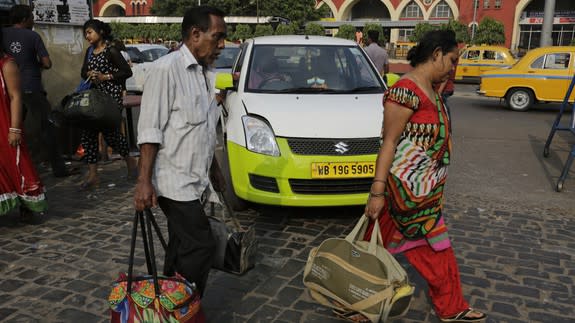Uber might now be able to charge thrice as much in India

It appears there will be no escape from inflated taxi fares for now.
A new set of guidelines released by India’s central government reveals that ride-hailing services such as Uber and its local counterpart, Ola, can now charge customers three times the minimum fare during the day, and up to four times between midnight and 5 a.m.
SEE ALSO: India's Ola brings its no-surge pricing, ride-sharing service to more cities
However, the minimum fare will still have to be submitted by these companies to the state transport departments for approval, reported the Times of India on Thursday.
The surge pricing will extend only to vehicles that are less than 4m (13 ft) in length, which apply to UberGO and Ola Micro services, that are classified as "economy taxis" in the country.
Indian customers aren't too happy with the move, and surge pricing in general.
New Guidelines from GOI allows Ola/Uber to have surge pricing upto 4 times - I hope the Delhi High Court strikes it down.
— Raj Waghray (@rajwaghray) December 15, 2016
Yesterday night @Ola_Mumbai @Uber_Mumbai showed mumbai how unreliable they are ....couldnt find a ride home despite heavy surge post 11pm.
— Nitin (@nkharde) December 13, 2016
The central govt is the govt for the rich.
3X surge price for #Ola, #uber. Well done #Modiji.
via @thenewsminute https://t.co/3boqFkWBiP— Jimy Pothen Joseph (@jimy_joseph) December 15, 2016
Not a smooth road yet
The government's move to allow surge pricing seems to contradict some decisions that authorities have made recently. The Delhi transport department announced recently it prosecuted over 8,000 cabbies over the last 10 months as part of its drive against surge pricing by app-based cab services.
And in August, the Delhi High Court had banned surge pricing by Uber and Ola in the National Capital Region (NCR). Even the southern India state of Karnataka had in March cracked down on the practice.
What is perhaps most interesting about the new guidelines is the inclusion of tourist taxis and private vehicles under aggregators.
This has reportedly displeased the traditional taxi operators in Mumbai, India’s commercial hub, who are likely to protest against the move.
Even in Karnataka — India’s IT capital — local operators are miffed. K Radhakrishna Holla, president of Bangalore Tourist Taxi Owners Association, says: "It’s illegal to have surge pricing when there is a High Court order. They cannot charge more than the government fixed rate."
In September, when regulators were still mulling over the new rule, a roads ministry official had told Times of India: "We do not want to get into the auto fare meter concept. If fares are too high, market forces will take over. But we cannot allow unlimited surge pricing and will define a maximum cap for the same."

 Yahoo News
Yahoo News 